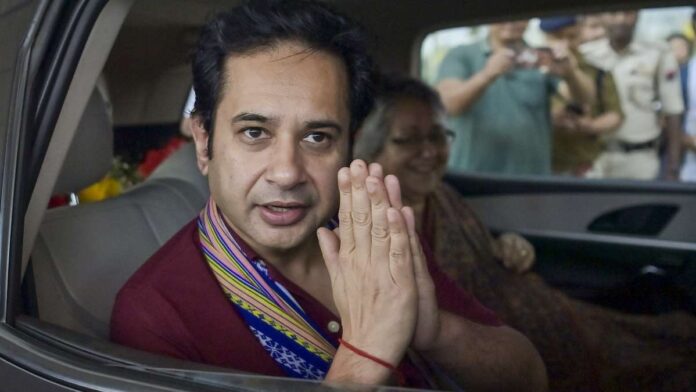The recent remarks by Tripura royal Pradyot Kishore Debbarman on the issue of surnames have reignited discussions surrounding gender, lineage, and societal norms. Pradyot’s assertion that both Indira Gandhi and Sonia Gandhi adopted their husband’s surnames, juxtaposed against his stance on his sister’s surname choice, underscores the complexities inherent in navigating tradition and modernity in a rapidly evolving society.
The saga began when Pradyot expressed his disappointment over his sister’s decision to retain her maiden surname after marriage. In a candid reflection on social media, he questioned the rationale behind bucking tradition, arguing that even prominent figures like Indira and Sonia Gandhi chose to adopt their husband’s surnames. This comparison ignited a firestorm of reactions, with many lauding Pradyot for his candor while others criticized him for perpetuating patriarchal norms.
At the heart of this controversy lies the age-old debate surrounding the significance of surnames in defining individual identity and lineage. In traditional societies, surnames often serve as markers of familial lineage, carrying with them a sense of heritage and belonging. For centuries, the practice of women adopting their husband’s surnames upon marriage has been deeply ingrained in social customs, reflecting patriarchal norms and the primacy of male lineage.
However, in recent decades, this tradition has come under scrutiny as women increasingly assert their autonomy and challenge gendered expectations. The choice of whether to retain one’s maiden surname or adopt their husband’s surname has become a deeply personal decision, symbolizing autonomy, agency, and the pursuit of equality within marriage and society at large.
Against this backdrop, Pradyot’s remarks on his sister’s surname choice raise broader questions about the intersection of tradition, gender, and individual autonomy. While his comparison to Indira and Sonia Gandhi may seem to reinforce the traditional norm of women adopting their husband’s surnames, it also highlights the complexity of navigating societal expectations and personal choices in a rapidly changing world.
Indeed, the examples of Indira and Sonia Gandhi offer a nuanced perspective on the issue. Both women, despite occupying positions of power and influence, chose to adopt their husband’s surnames, perhaps reflecting the enduring influence of tradition and societal expectations even among the most prominent figures. However, it is essential to recognize that their decisions were shaped by a myriad of factors, including personal beliefs, political considerations, and social norms prevalent at the time.
Moreover, the comparison to Indira and Sonia Gandhi also raises questions about the dynamics of privilege and power in shaping individual choices. As members of elite political families, their decisions may have been influenced by considerations beyond mere tradition, such as political expediency or the desire to project a unified family image. In contrast, for ordinary individuals, the choice of surname after marriage may carry different connotations and implications, reflecting diverse experiences and aspirations.
Ultimately, the surname saga surrounding Pradyot’s sister underscores the need for a more inclusive and nuanced understanding of identity and tradition. While traditions have their place in shaping cultural norms and practices, they should not serve as rigid constraints on individual autonomy and agency. Rather, they should evolve in tandem with changing societal values and aspirations, allowing individuals to express their identities authentically and without judgment.
In addition, Pradyot’s reflections on his sister’s surname choice offer a compelling glimpse into the complexities of tradition, gender, and individual autonomy. By invoking the examples of prominent figures like Indira and Sonia Gandhi, he prompts us to reexamine our assumptions and biases surrounding the issue of surnames. In doing so, he catalyzes a broader conversation about identity, tradition, and the quest for equality in a diverse and dynamic society.



